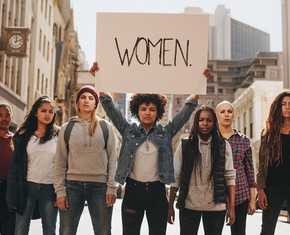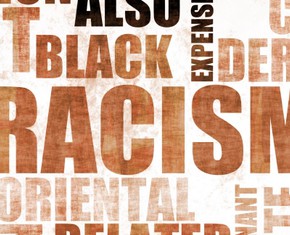The views expressed in our content reflect individual perspectives and do not represent the authoritative views of the Baha'i Faith.
When I think about the problems of our time, it often feels like the more things change, the more they stay the same. We might vote differently or notice ideologies shift from one generation to the next, but many of the issues of the past seem to persist in new forms today.
Racism, sexism, and neo-colonialism are very much alive and well in our world. Despite understanding the need for long term work in dismantling these realities, I still feel the need to act with urgency because as long as these systems of oppression exist, people’s lives will continue to be impacted by injustice. The slow pace of change can feel very disheartening if we don’t think about the larger context. Some of us have even given up on contributing to changing the world. The task just feels too overwhelming and unachievable.
RELATED: Black Life Is Not Up For Debate
When I was still in graduate school, I attended a conversation between legendary activist Angela Davis and “The New Jim Crow” author Michelle Alexander. Davis talked about the importance of recognizing that our work is a tiny piece of a much larger movement towards change. She especially emphasized the reality that the other parts of this movement are not always a part of our generation, but that as Black Americans, we are continuing the work of our ancestors for freedom.
RELATED: Slavery’s Effects: Still Real in American Culture
In reflecting on these words a passage from the Baha’i writings comes to mind that pushes me to consider ways to reinvigorate ourselves with hope and dedication to addressing some of the long-standing issues humanity faces. In the 20th century, Shoghi Effendi, the Guardian of the Baha’i Faith, wrote:
At present the state of affairs is in turmoil, tribulations are manifold and the authorities have launched attacks from every direction. However, the invisible Hand of God is at work and the wrathful Avenger is watching over the oppressed community of the righteous and the pious. Things that were hidden will be revealed and realities that were unknown will become clear and evident. The innocence of those long-suffering and sanctified beings will definitely be proved and established, and every act of injustice, of iniquity and malice wrought by the evil-doers will be laid bare. The day-star of glory, as is prophesied, will shine forth from that land with such radiance that all men, high or low, of the rulers or the ruled, friend or foe, whether far or near, will be astonished and bewildered.
Now is the time for steadfastness. Now is the ripe moment for the stalwart warriors and champions to show forth courage and to demonstrate their heroism in the arena of service, until such time as God will exalt His Cause, will remove the distress and anxiety of His friends and trusted servants, and glorify those who were brought low among His creatures, to make them spiritual leaders among men, and to make them God’s heirs.
One thing I take away from this passage that confirms my efforts towards racial justice and anti-oppression work is the idea that even when human beings fall short, justice will eventually be a reality. This concept also removes the feeling of hyper responsibility that some of us adopt — thinking that it is our job alone to bring about justice. Remembering that justice will eventually be achieved also helps me feel much less depressed when our system, our communities, or our world at large yet again fails to hold people and institutions accountable for their actions.
In order for the work of achieving equity to be sustainable, though, it is also important to remember that we have to keep our head down and dedicate ourselves to spreading justice and light, despite it often feeling like things are moving slowly.
Indeed, as Angela Davis said, as we do our work, it is helpful to remember that we will most likely not accomplish all that needs to be done. It is probably impossible for us to imagine all that needs to happen for true liberation. Rather, we work so that we can pass the baton to the next generation.
Davis gave the example of Black people born into chattel slavery who led or supported rebellions against their cruel white slave owners. She pointed out that the chances are that most of these brave souls knew that they would not reap the personal benefits of freedom, but they made choices and sacrifices for the benefit of generations to come.
Practicing heroism and courage in our service directed towards changing the world is not always going to mean that we get to see all of the fruits of our actions. But that does not mean our work is worthless or that change isn’t coming.
















Comments
Sign in or create an account
Continue with Googleor